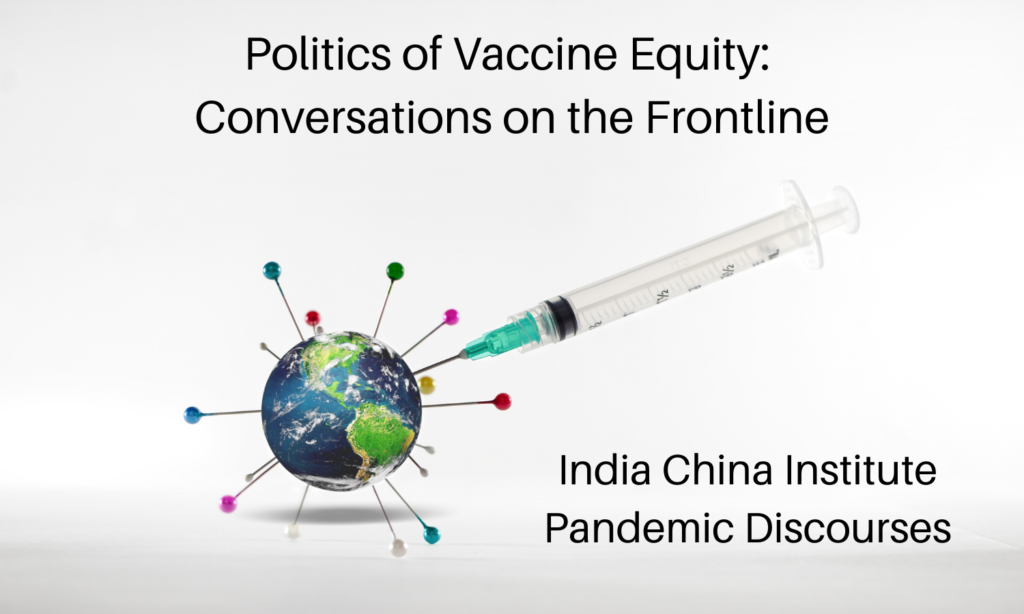
Calls for vaccine equity have escalated over the recent months as the vaccination rollout gained momentum in the US, UK, and other high income countries, exposing the stark realities of the North-South divide. As of April 9, 2021, 700 million doses have been administered globally: 87% in the high and upper middle-income countries, and just 0.2% in the low income countries. Much of the Global South may well not be vaccinated until 2023 if ever. WHO Director General Dr. Tedros calls this failure to put in place institutional arrangements to meet the global needs of vaccination to resolve a global pandemic a ‘catastrophic moral failure’ and tantamount to ‘medical malpractice’. It is also a failure of policy making for public health and for economic recovery.
Such outcomes come as no surprise. It repeats the history of HIV/AIDS anti-retrovirals which were priced out of reach for the majority of people in the South who needed these lifesaving medicines. For over a year now, many political leaders, civil society activists, academics and others – from the UN Secretary General to the President of South Africa to Nobel Laureate Joseph Stiglitz – have raised alarm at the foreseeable scenario and call for solidarity in treating COVID-19 as a global public good, a ‘people’s vaccine’. They have challenged the proprietary model for pharmaceutical manufacturing, and called for exceptional arrangements for a global public good: technology sharing and mobilization of global manufacturing capacity, necessary to scale up production and distribution to match the global need. Governments of South Africa and India, supported by over 100 countries have tabled a proposal at the WTO Council to lift the provisions of the TRIPS agreement for COVID-19 vaccines and treatment as long as the pandemic continues. The WHO has set up a system for technology sharing – C-TAP – an initiative led by Costa Rica.
The struggle for a more equitable system of financing, manufacture, and pricing of pharmaceuticals has a long history, going back before the HIV/AIDS crisis of the late 1990’s to the demands for affordable pricing of essential medicines. But the context is new: an unprecedented public health crisis in rich countries; the emergence of suppliers from China, Russia, India and elsewhere; new financing sources such as the Gates Foundation, and new public institutions such as the Africa CDC. How have the politics of the struggle shifted? How might the alliances and interests of the stakeholders evolve?
In the coming weeks, Pandemic Discourses will publish a series of conversations on the frontline, interviews with advocates for access to life saving medicines and innovation to hear their perspectives on the politics of the struggle for access to medicines.
In the coming weeks, Pandemic Discourses will publish a series of conversations on the frontline, interviews with advocates for access to life saving medicines and innovation to hear their perspectives on the politics of the struggle for access to medicines. We start this week with a conversation with Mohga Kamal-Yanni, a public health expert and activist from Egypt who resides in Oxford.
